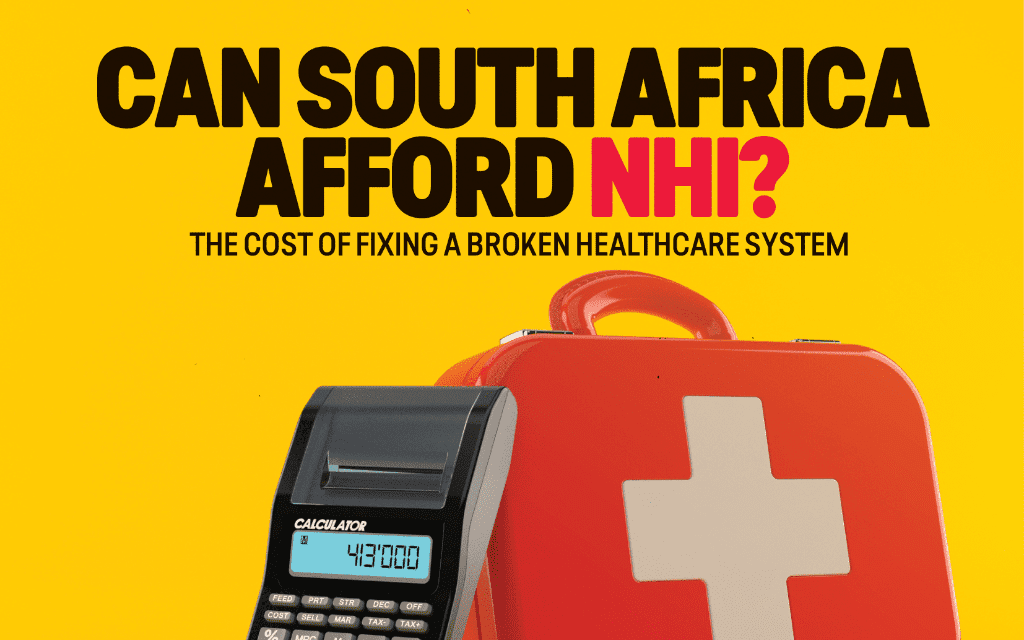Reports of alleged corruption plaguing the Government Employees Medical Scheme (GEMS) – one of the vehicles being touted to administer the National Health Insurance (NHI) – should not come as a surprise. The Free Market Foundation (FMF) notes with concern these reports, and stresses to both government and citizens the crucial lesson that must be learned from this scandal. No matter the amount of money poured into a potential NHI, this will only open the door to yet more corruption and widespread inefficiencies.
According to News24, “The accusations of graft at GEMS are detailed in a series of 10 explosive forensic reports which show that over a period of five years the scheme had appointed and paid more than R300 million to companies in which some of its executives had direct financial interests.”
Even if the government finally decided to let go of the myriad failed state-owned entities (SOEs) – SAA, Eskom, the SABC, Denel, etc. – and cut back on the number of exorbitantly paid public servants, there is no reason to believe that it could then use available funds to adequately and efficiently provide quality healthcare services.
Filling the NHI with the most capable and knowledgeable experts will never ensure that the entity can respond efficiently to ever-changing, different market forces. In all things healthcare, time is often limited to respond quickly to the latest health-related problem a patient faces. To subject the changing healthcare needs of 60 million people to the bloated bureaucracy of government will only delay necessary treatments, aggravate access problems and ultimately produce poorer outcomes.
Possible solutions
The time for realism and brutal honesty has come. The state must acknowledge its shortcomings, tighten its belt – it has effectively run out of fiscal room – and establish a roadmap of clear goals (and accountability) for fixing the problems that plague the public healthcare sector.
It should use what tax revenue it can still collect not for grandiose SOEs but for concrete service delivery for poorer South Africans.
Those citizens who can afford to pay for private medical schemes should be left free to do so – there is no need for the state to take on the burden of providing for their needs as well.
The state could also seek to implement much-needed reform for the private sector, as outlined in the Health Market Inquiry, which would expand coverage for willing purchasers of private healthcare with the subsequent benefit of alleviating pressure on the limited public system resources.
As FMF Health Policy Unit member Mike Settas explained, “Monopolising the management of all healthcare services in the country will not solve any of the current problems in either the public or private sectors – doing so will only exacerbate these, at the ultimate cost of citizens. The British realised by the 1980s that the heavily centralised monopoly structure of the NHS was inefficient, slow to respond and delivered poor outcomes. Subsequent reform from the 1990’s onwards to decentralise NHS structures and implement market reforms have seen outcomes steadily improve in the NHS over the past few decades.”
FMF Deputy Director Chris Hattingh added, “The solution to government-caused problems is not to add more government involvement into the mix. The private healthcare sector is hobbled by all kinds of interventions, taxes, tariffs, and restrictive regulations – it can be much more efficient, and affordable, if we removed all the red-tape that plagues it.”
Hattingh further noted that, the shortcomings and structural problems of government administration were exposed during the COVID-19 pandemic; from wasting time spent in hard lockdown to prepare facilities for the expected increase in cases, to the corruption that marked personal protective equipment (PPE) procurement and rollout, to the constant confusing and mixed messaging that has typified the vaccine acquisition and distribution process. “To subject all South Africans’ healthcare to the endemic problems of state administration is,” concludes Hattingh, “going by everything we have learned, downright cruel.”
The FMF is an independent, non-profit, public benefit organisation, created in 1975 by pro-free market business and civil society national bodies to work for a non-racial, free and prosperous South Africa. As a policy organisation it promotes sound economic policies and the principles of good law.

